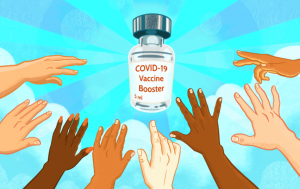As soon as a new highly transmissible variant with a huge number of mutations was identified in South Africa at the end of November, the news was followed by a stream of apocalyptic scenarios and dire predictions. Press headlines screamed: a tsunami epidemic is about to hit the world: the variant’s massive number of Omicron mutations (50 with over 30 in the spike protein which is the main target of the vaccines) was described by one scientist as “horrific;” in the UK, “Prof. Lockdown” (Neil Ferguson) predicted that Omicron would cause 10,000 hospitalizations per day by the end of the year; in Australia, scientists warned that Omicron could have been created by a process of “recombination” of the Alpha variant with Delta and this recombination could lead to a more lethal and infectious virus. And to top it all, Dame Sarah Gilbert, co-inventor of the Astrazeneca vaccine, warned that the next pandemic after Covid 19 could prove to be much worse.
A reflection of the pace at which Omicron is spreading: to date, it has already been identified in 77 countries. In the UK, it is spreading at a rate of 200,000 infections per day. By the end of January, the rate is expected to reach one million cases a day, totaling 30 million by the end of the month. That’s half the population of the UK! No variant has every spread this fast. Indeed, a new study by Hong Kong University has shown that Omicron replicates 70 times faster than Delta.
The other major concern raised by Omicron is that the new variant is now so different from the original Wuhan or Alpha strain that it may evade the immunity imparted by the vaccines. The first case of Omicron identified in Israel at the end of November was in a cardiologist who picked up the virus while on a visit to London and who was fully vaccinated with three shots of the Pfizer vaccine.
Reactions have been swift. Varying levels of lockdowns and sets of restrictions have been imposed across Europe. In the UK, people have been told to isolate and work at home as much as possible, and vaccine passports have been introduced against the will of many members of the governing party; Japan and Israel have closed their borders to foreigners and a swathe of African countries have been placed on a travel ban list.
So what do we know precisely about Omicron and is the panic justified?
The main characteristic, as noted above, is its high level of transmissible. In South Africa, Omicron has taken over completely from Delta and has become the dominant variant within a period of just a few weeks. As Dr. John Campbell (whose highly informative You-Tube clips this article is based on) points out: “The South Africa data shows that Omicron does not live side by side with Delta, it totally replaces it.” The same picture can therefore be expected to be seen shortly in the rest of the world. “We are all going to be exposed,” says Dr. Campbell with certainty.
The good news is that the symptoms caused by Omicron appear to be relatively mild.
Of the 4,250 newly hospitalized cases in South Africa, 70% were patients who suffered from other causes. And despite the huge spike in infections, the rate of Covid deaths has not increased there. In Israel, the doctor who was infected in the UK suffered a fever for 48 hours and extreme fatigue for 72 hours. He is now fully recovered.
Another reason for optimism, says Dr. Campbell, is that a common cold sequence has been identified in Omicron and such a sequence has not been found in any other Covid variant. This sequence derives from a common cold coronavirus, of which there are many, known as HCoV-229E. Dr. Campbell concludes that this characteristic is what makes Omicron more transmissible but less dangerous. The Hong Kong study, mentioned above, also found that Omicron grows 10 slower in the lungs than the Delta variant.
The fact that Omicron is, at the same time, highly transmissible but mild is seen by many commentators as very good news since this could bring an end to Covid. In this optimistic scenario, Omicron will take over, infect almost everyone but mildly and bring about the much wished-for herd immunity without the need for vaccines. In fact, a mild Omicron could act as a natural vaccine imparting immunity to a massive number of people. And, hopefully, this immunity will also be effective against other new variants that may emerge.
Based on the data coming out of South Africa, the other good news is that, as quickly as Omicron spreads and peaks, so it declines. In the state of Gauteng, the epicenter of the epidemic in South Africa, the number of cases has already begun to fall.






